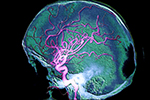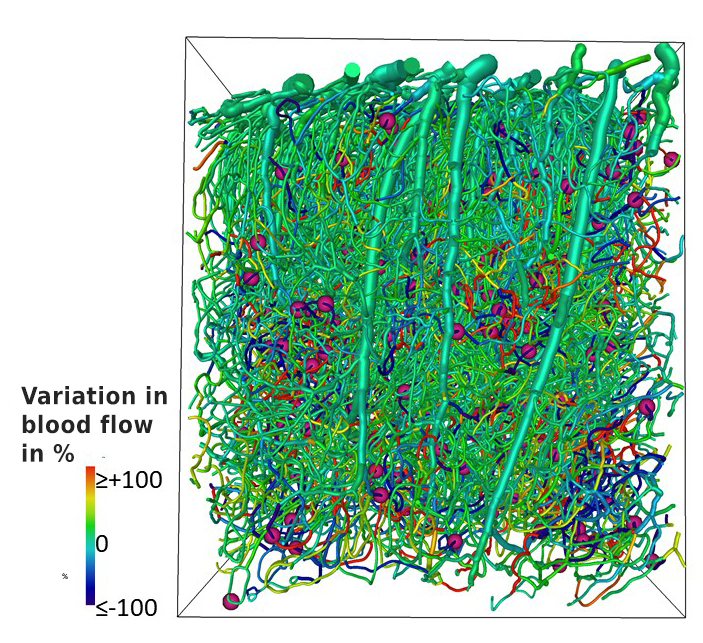Alzheimer's disease : blood flow might impact memory function
The February 11, 2019

Alzheimer's disease, a neurodegenerative disease affects 900,000 people in France. While there is still no curative treatment, research conducted by the Institut de Mécanique des Fluides (IMFT,CNRS/Université de Toulouse III - Paul Sabatier/Toulouse INP), associated with a US team from Cornell University, show a link between disease and blood flow.
Results published in the journal Nature Neurosciences explained that the team focused on the link between cerebral blood flow and the development of Alzheimer's disease.
This study identified a previously uncharacterised cellular mechanism that explains the majority of the cerebral blood flow reduction seen in two mouse models of Alzheimer's disease and demonstrated that improving cerebral blood flow rapidly enhanced short-term memory function.
Restoring cerebral perfusion by preventing neutrophil adhesion may provide a strategy for improving cognition in Alzheimer's disease patients.

Administration of antibodies against the neutrophil marker reduced the number of stalled capillaries, leading to both an immediate increase in cerebral blood flow and rapidly improved performance in spatial and working memory tasks.
These results lead researchers to continue their work, the goal being to implement a more effective treatment earlier against Alzheimer's.
Read more:
Alzheimer: la réduction du débit sanguin cérébral joue un rôle dans le développement de la maladie.



